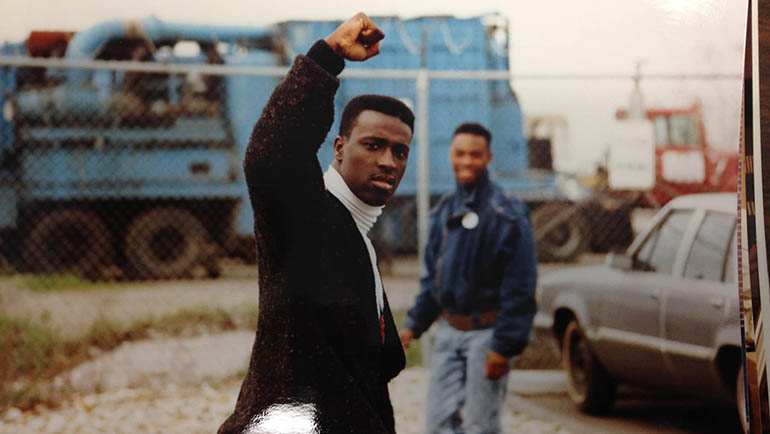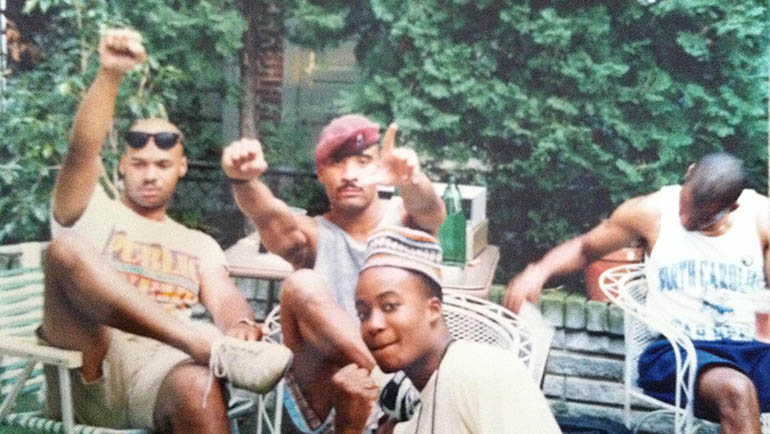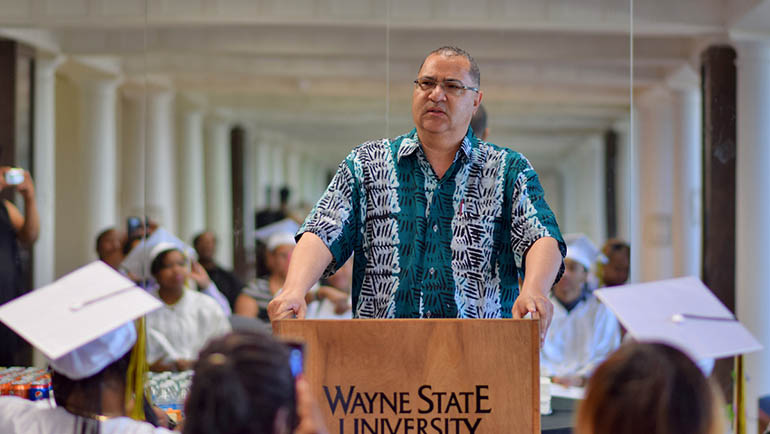
In 1989, scores of Black students at Wayne State University commandeered the university’s Helen Newberry Joy building for 10 days as part of a “study-in” protest that galvanized the city and led to the establishment of WSU’s Department of African American Studies.
Now, 35 years later, the department is celebrating not only its anniversary but the student movement that led to its creation. On April 12, the department will host a reception honoring some of the leaders of the WSU study-in. The following day, the department will sponsor a luncheon celebrating the student demonstration.

Ollie Johnson, Ph.D., the chairperson of the Department of African American Studies, noted that, in the 30-plus years since the department opened in 1990, it has become reflective of WSU’s broader commitment to higher education in Detroit — particularly among the city’s African American community — and exemplifies Wayne State’s tradition of producing impactful Black leadership in the city and surrounding region.
“Wayne State University has always been a university of opportunity,” Johnson said. “It's been an institution that’s given access to higher education to working-class students, middle-class students and poor students. As a result, many of the most outstanding professionals, leaders in the city of Detroit, Wayne County, Southeast Michigan and the state, have been Wayne State graduates. We are very proud of that.”
Stephanie Hartwell, dean of Wayne State’s College of Liberal Arts and Sciences, which houses the African American studies department, described the department as “a beacon of inspiration,” both locally and globally.
“As we commemorate the 35th anniversary of its founding study-in, we're reminded of the department's enduring commitment to academic excellence, social justice and community engagement,” Hartwell said. “Their work is a testament to the power of education in driving positive change.”
Johnson, whose own research centers on Afro-Brazilian politics and the history of the larger African diaspora, pointed out the global reach of the department’s scholarship as related to Black culture, history and society.

“For the last 35 years, the department has had some of the most important scholars in the world related to the Black experience,” he said. “We’ve had some of the most outstanding African scholars in politics, education and literature and some of the most outstanding scholars related to Caribbean politics and society. I always tell people, when I study Brazil, I see a lot of similarities to the African American political struggle and political experience.”
Johnson also hailed the work of department scholars like former chairperson and internationally lauded poet Melba Boyd, Ph.D., film/culture expert Lisa Alexander, Ph.D., and others who’ve made major contributions to the department’s study and promotion of African American culture.
“We’re doing original research that has been recognized and celebrated,” he said. “We are locally grounded but also always thinking globally. We want to make our contribution to humanity and to scholarship. That’s what we're about — academic excellence, social responsibility and cultural grounding.”
Johnson said the department will continue to widen the scope of its research, elevate the university’s mission in the city, press for positive social change and broaden educational access for African Americans in Detroit.
“Our home base is African American history, culture and politics,” he explained. “We are a community institution. In the last 35 years, we have impacted a lot of students from Detroit and throughout the state. And we feel very good about that because these former students have gone on to be leaders in their own right. We're equally proud of the tradition of activism that the university has and of the fact that the department has resulted from student activism. The university answered the call, responded positively to student demands and created a great institution in the city of Detroit.”
